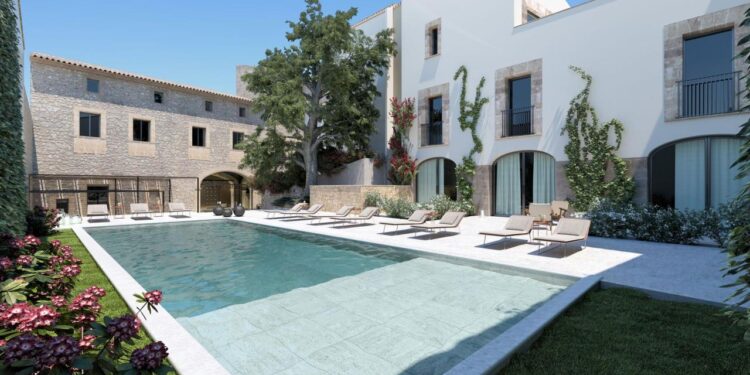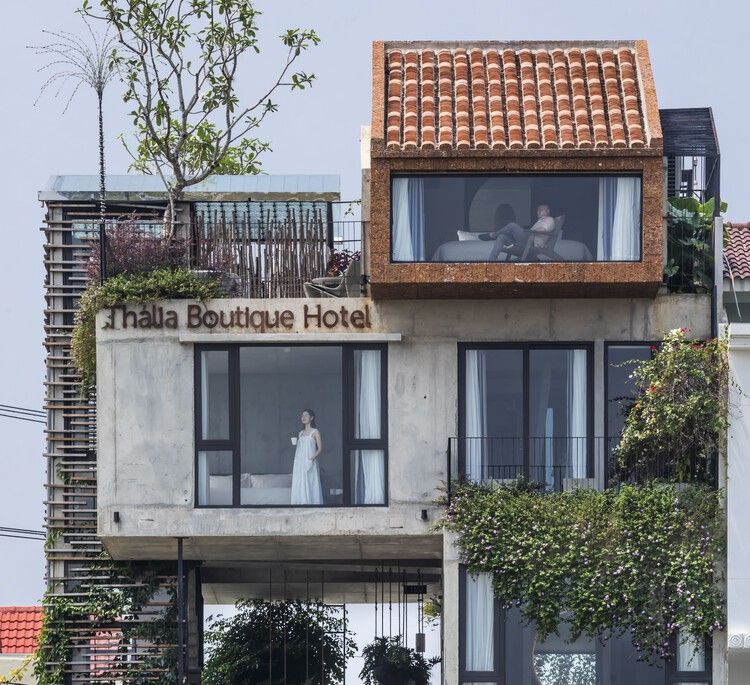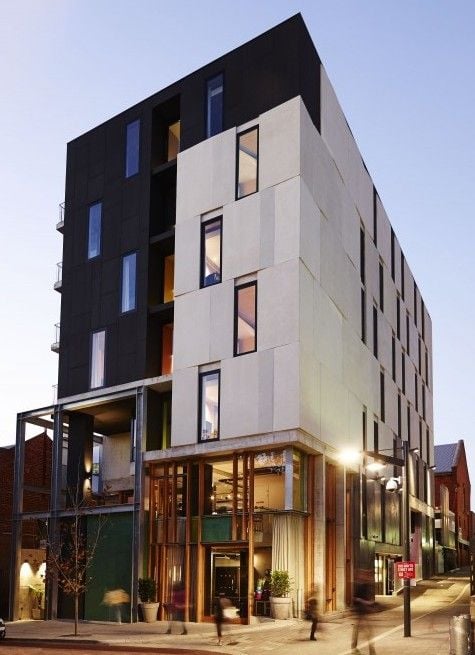Boutique Hotels: Blending Design & Comfort
In the ever-evolving world of hospitality, boutique hotels have carved out a unique and increasingly prominent niche. Far from being just another place to sleep, these establishments offer a deeply personal, aesthetically rich, and often culturally immersive experience that stands in stark contrast to the standardized offerings of larger chain hotels. What truly defines a boutique hotel isn’t merely its size, though they are typically smaller, but rather their unwavering commitment to distinctive design, exceptional comfort, and highly personalized service. This comprehensive article will delve into the multifaceted appeal of boutique hotels, exploring their origins, key characteristics, their role in the modern travel landscape, and why they continue to captivate the hearts of discerning travelers worldwide. We’ll uncover how these unique properties masterfully blend artistic vision with the ultimate in guest comfort, creating stays that are not just enjoyable, but truly memorable and inspiring.
The Genesis of a Movement: From Niche to Mainstream
The concept of the boutique hotel first emerged in the 1980s, primarily credited to hotelier Ian Schrager and his partner Steve Rubell, who coined the term for their Morgans Hotel in New York City in 1984. They envisioned a new kind of hotel that eschewed the sterile, cookie-cutter approach of large corporations in favor of something more intimate, stylish, and reflective of local culture. Their aim was to create spaces that felt more like a sophisticated private residence than a traditional hotel, appealing to a clientele seeking design-forward aesthetics and a more vibrant, social atmosphere.
Initially, boutique hotels were largely an urban phenomenon, found in cosmopolitan hubs like London, Paris, and New York. They catered to a niche market of fashionistas, artists, and business travelers who appreciated their avant-garde interiors and exclusive ambiance. However, their unique appeal quickly transcended these early confines. As travelers became more sophisticated and their desires shifted from mere functionality to authentic experiences, the boutique hotel model began to proliferate globally, adapting its core principles to various destinations, from historic city centers to serene natural landscapes. Today, “boutique” is less about strict size constraints and more about a philosophy of hospitality: a focus on individuality, curated experiences, and a strong sense of identity.
Defining Characteristics: More Than Just Small Hotels
While there’s no single rigid definition, several core characteristics consistently define a true boutique hotel, setting it apart from its larger, more conventional counterparts.
A. Distinctive Design and Unique Aesthetics
This is arguably the most recognizable hallmark of a boutique hotel. Each property boasts its own unique narrative, often expressed through meticulously curated interiors and architectural elements.
- Individualized Personality: Unlike chain hotels where rooms might look identical across properties, every boutique hotel strives for a singular identity. This is evident in its architectural style, interior decor, and even the choice of artwork. The design often tells a story, perhaps reflecting the building’s history, the local culture, or a specific artistic theme.
- Curated Interiors: Designers often work with local artists, artisans, and independent furniture makers to create spaces that are truly one-of-a-kind. Expect bespoke furniture, unique lighting fixtures, original art installations, and a thoughtful use of textures, colors, and materials that evoke a specific mood or atmosphere. The lobby, for instance, is rarely just a transactional space; it’s often designed as a vibrant, inviting living room or a gallery.
- Attention to Detail: It’s in the minutiae that boutique hotels truly shine. This could be anything from the type of glassware in the room, the scent in the lobby, the design of the stationery, to the carefully selected books on a shelf. Every element is deliberately chosen to contribute to the overall aesthetic and guest experience.
- Integration of Local Culture: Many boutique hotels consciously weave elements of their surrounding environment into their design. This might involve using local craftsmanship, incorporating traditional patterns, or showcasing indigenous art, providing guests with an immediate sense of place and connection to the destination.
B. Intimate Atmosphere and Personalized Service
The smaller scale of boutique hotels facilitates a level of intimacy and personal attention that is difficult for larger establishments to achieve.
- High Staff-to-Guest Ratio: With fewer rooms, staff members can offer a more attentive and anticipatory service. They often get to know guests by name, remember their preferences (from preferred pillow types to coffee orders), and can provide tailored recommendations.
- Anticipatory Service: This goes beyond simply responding to requests. It’s about predicting guest needs before they even voice them. For example, a staff member might notice a guest’s interest in local art and discreetly arrange a private gallery visit or provide information on local exhibitions.
- Seamless Guest Experience: From a personalized welcome upon arrival that might involve a local delicacy or a curated drink, to efficient check-in and check-out processes, every interaction is designed to be smooth, friendly, and memorable. Staff are often empowered to make decisions on the spot to ensure guest satisfaction.
- Sense of Community: Many boutique hotels foster a convivial atmosphere, encouraging interaction among guests and between guests and staff. Common areas like lounges, bars, or courtyards are often designed to facilitate social engagement, creating a feeling of being part of an exclusive club or a welcoming home.
C. Thoughtful Amenities and Comfort Beyond the Basics
While design is paramount, it never comes at the expense of comfort. Boutique hotels invest in high-quality amenities that enhance the guest experience.
- Premium Bedding and Linens: Expect luxurious mattresses, high thread-count sheets, and a selection of pillows designed to ensure a restful night’s sleep. The bed is often the centerpiece of the room, designed for ultimate comfort and aesthetic appeal.
- High-Quality Bathroom Products: Beyond standard toiletries, boutique hotels often feature high-end, often locally sourced or organic, bath products from renowned brands, alongside plush towels and well-designed showers or bathtubs.
- Advanced Technology Integration: Rooms often feature smart TVs with streaming capabilities, high-speed Wi-Fi (often complimentary), intuitive climate control systems, and ample charging ports. Some even offer smart room controls via a tablet or app.
- Unique In-Room Offerings: This could include a curated mini-bar with local craft beers or gourmet snacks, a selection of interesting books, a record player with a collection of vinyl, or complimentary local treats and beverages. These touches enhance the sense of discovery and delight.
- Comfortable Public Spaces: Beyond the rooms, lounges, libraries, and outdoor areas are designed to be inviting and comfortable, encouraging guests to relax, socialize, or work in a pleasant environment.
D. Food & Beverage: Local Flavors and Unique Concepts
Boutique hotels often pride themselves on their distinctive culinary offerings, moving away from generic hotel restaurants.
- Emphasis on Local and Seasonal Ingredients: Restaurants often source ingredients from local farms and purveyors, ensuring freshness and supporting the community. Menus frequently change to reflect seasonal availability.
- Unique Dining Concepts: Instead of large, all-day dining rooms, boutique hotels might feature a specialized bistro, a rooftop bar with panoramic views, a speakeasy-style cocktail lounge, or a café focusing on artisanal coffee and pastries.
- Intimate Dining Experiences: Seating arrangements often promote intimacy, and the focus is on a curated menu rather than vast buffets. The dining experience is often an extension of the hotel’s overall design philosophy.
- Craft Beverages: There’s a strong emphasis on high-quality coffee, artisanal teas, a well-curated wine list (often featuring local wines), and creative, handcrafted cocktails that reflect the hotel’s character.
The Evolution of the Boutique Hotel: Trends and Adaptations
The boutique hotel sector is far from stagnant; it continues to evolve, incorporating new trends and adapting to changing traveler demands.
A. The Rise of “Lifestyle” Hotels
A natural progression from the boutique concept, lifestyle hotels often take the emphasis on design and experience a step further, integrating elements that cater to specific interests or a particular demographic. They often feature:
- Co-working Spaces: Catering to the digital nomad and remote worker, offering stylish and functional areas for productivity.
- Fitness & Wellness Focus: Incorporating state-of-the-art gyms, yoga studios, wellness programs, and healthy dining options.
- Retail Partnerships: Featuring curated retail spaces selling unique local goods, fashion, or design items that align with the hotel’s brand.
- Experiential Programming: Hosting events like live music, art exhibitions, cooking classes, or workshops that are open to both guests and locals, creating a vibrant social hub.
B. Sustainable and Eco-Conscious Boutique Hotels
As environmental awareness grows, many boutique hotels are integrating sustainability into their core operations and design.
- Green Building Practices: Utilizing sustainable materials, energy-efficient systems, rainwater harvesting, and waste reduction programs during construction and operation.
- Local Sourcing and Community Support: Beyond food, sourcing furniture, amenities, and staff locally to reduce carbon footprint and support the local economy.
- Conservation Efforts: Partnering with local conservation initiatives, offering eco-tours, or implementing programs to reduce water and energy consumption.
- Minimal Waste Initiatives: Reducing single-use plastics, implementing robust recycling programs, and composting organic waste.
C. Boutique Hotels in Non-Traditional Locations
While traditionally urban, boutique hotels are now flourishing in diverse settings.
- Rural Retreats: Charming properties nestled in scenic countryside, offering a tranquil escape with a focus on nature, local heritage, and gourmet farm-to-table dining.
- Coastal Escapes: Stylish beachfront properties with a focus on water sports, wellness, and fresh seafood, often with stunning ocean views.
- Historic Conversions: Repurposing old mansions, industrial buildings, or heritage sites into unique hotels, preserving architectural history while offering modern comforts and distinct character. This offers a unique storytelling element.
- Adventure-Focused Lodges: Boutique properties located near national parks or adventure hubs, offering curated outdoor activities alongside luxurious amenities.
D. Technological Integration for Seamless Experiences
While maintaining a human touch, boutique hotels are increasingly leveraging technology to enhance convenience and personalization.
- Mobile Check-in/Check-out: Allowing guests to bypass the front desk and manage their stay via a smartphone app.
- Smart Room Controls: Guests controlling lighting, temperature, curtains, and entertainment systems via an in-room tablet or their own device.
- AI-Powered Concierge: Using chatbots or AI systems for instant answers to common questions or to provide personalized recommendations for local attractions.
- Keyless Entry: Using smartphone apps or digital codes for room access, enhancing security and convenience.
Why Travelers Choose Boutique Hotels
The sustained growth of the boutique hotel sector is a testament to its profound resonance with modern travelers. Their appeal goes beyond mere comfort and delves into a desire for unique, enriching experiences.
A. The Desire for Authenticity and Local Connection
Travelers are increasingly seeking experiences that offer a genuine glimpse into the local culture, moving away from generic tourist traps. Boutique hotels, with their emphasis on local design, food, and staff, provide that authentic connection. They serve as a gateway to understanding the destination on a deeper level.
B. Seeking Unique and Memorable Experiences
In an age of endless digital content and readily available travel information, travelers crave experiences that stand out and create lasting memories. The distinctive design, curated amenities, and personalized service of a boutique hotel ensure that each stay feels unique and special, offering a narrative that goes beyond typical vacation photos.
C. Valuing Personalized Service Over Anonymity
Many travelers find the anonymity of large hotels less appealing. Boutique hotels, with their intimate scale and attentive staff, offer a sense of being truly cared for and recognized. This personal touch fosters loyalty and makes guests feel like valued individuals rather than just another room number.
D. Appreciating Design and Aesthetics
For those who appreciate art, architecture, and interior design, boutique hotels are a source of inspiration and enjoyment. They offer aesthetically pleasing environments that stimulate the senses and contribute to a feeling of luxury and indulgence. It’s an opportunity to stay in a living, breathing work of art.
E. A Sense of Exclusivity and Community
While not necessarily exclusive in price, boutique hotels often create a feeling of exclusivity due to their unique character and limited number of rooms. Guests feel they are part of a select group who appreciate such a distinctive offering. The communal spaces often foster a sense of camaraderie among like-minded travelers.
Challenges and Considerations for Boutique Hotels
Despite their strong appeal, boutique hotels also face specific challenges in the competitive hospitality landscape.
A. Scalability and Brand Recognition
Their very nature of being unique and often independent makes large-scale brand recognition challenging. While this is part of their charm, it can make marketing and reaching a broader audience more difficult compared to established hotel chains with massive marketing budgets.
B. Operational Costs and Maintaining Uniqueness
Creating and maintaining bespoke design and offering highly personalized service can be more expensive than standardized operations. Sourcing unique materials, commissioning local artists, and employing a higher staff-to-guest ratio all contribute to higher operational costs, which must be balanced with competitive pricing.
C. Dependence on Online Reviews and Word-of-Mouth
Given their often smaller marketing budgets, boutique hotels heavily rely on positive online reviews and strong word-of-mouth recommendations. A single negative experience can have a disproportionately large impact on their reputation.
D. Adapting to Evolving Traveler Expectations
The boutique hotel concept must continuously innovate and adapt to stay relevant. Traveler preferences, technological advancements, and sustainability demands are constantly evolving, requiring boutique hotels to be agile and forward-thinking in their offerings.
The Enduring Allure: Why Boutique Hotels are the Future
The future of hospitality looks increasingly tailored, authentic, and experience-driven. Boutique hotels, with their inherent ability to deliver on these fronts, are perfectly positioned to thrive. They represent a fundamental shift in what travelers seek: less about opulent displays of wealth and more about genuine connection, inspiring aesthetics, and personalized comfort that leaves a lasting impression.
As travelers continue to prioritize unique narratives over generic amenities, the charm, character, and curated experiences offered by boutique hotels will only grow in importance. They are not merely places to stay; they are destinations in themselves, offering an immersive journey into design, comfort, and local culture. The essence of a boutique hotel lies in its ability to make each guest feel not just welcomed, but truly special, creating memories that linger long after check-out. It’s about crafting an experience that feels personal, intimate, and utterly unforgettable, proving that true luxury resides not just in grandeur, but in thoughtful detail and authentic connection.











